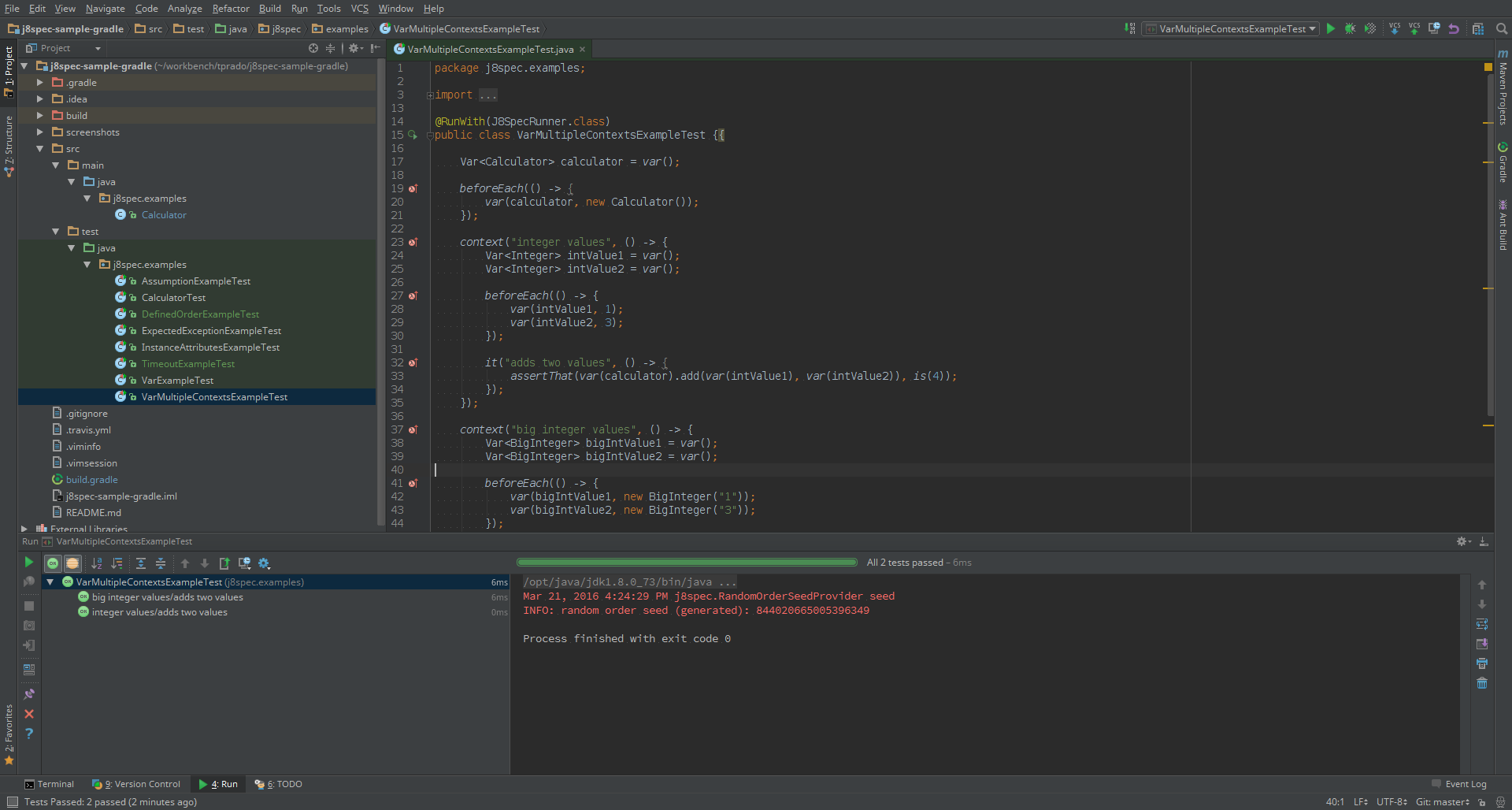J8Spec is a library that allows tests written in Java to follow the BDD style introduced by
RSpec and Jasmine.
If you are not familiar with those tools, you should definitely take some time
to try them out.
Here is an example:
Since J8Spec comes with a JUnit runner, it works out-of-the-box
with IDEs and build tools that support JUnit.
J8Spec tries its best to be as similar as possible to RSpec and Jasmine, but
it is still bound to the restrictions imposed by Java.
# accessing local variables of the enclosing scope
Where as in Ruby and JavaScript it is trivial to access a local variable
within a closure, in Java, the local variable must be effectively* final -
which means it cannot have its value changed.
*Since Java 8, the compiler can figure out if the variable is effectively
final - no need for the final modifier.
See Lambda Expressions.
# instance attributes
One way to work around this is to use instance attributes.
# var wrapper
Another way is using J8Spec's Var wrapper. It is a simple wrapper
around the test subject. It allows the local variable to be effectively
final whilst the internal reference can be modified.
Although it adds a little bit of noise to the code, it allows variables to
be defined close to the context where it's being used.
